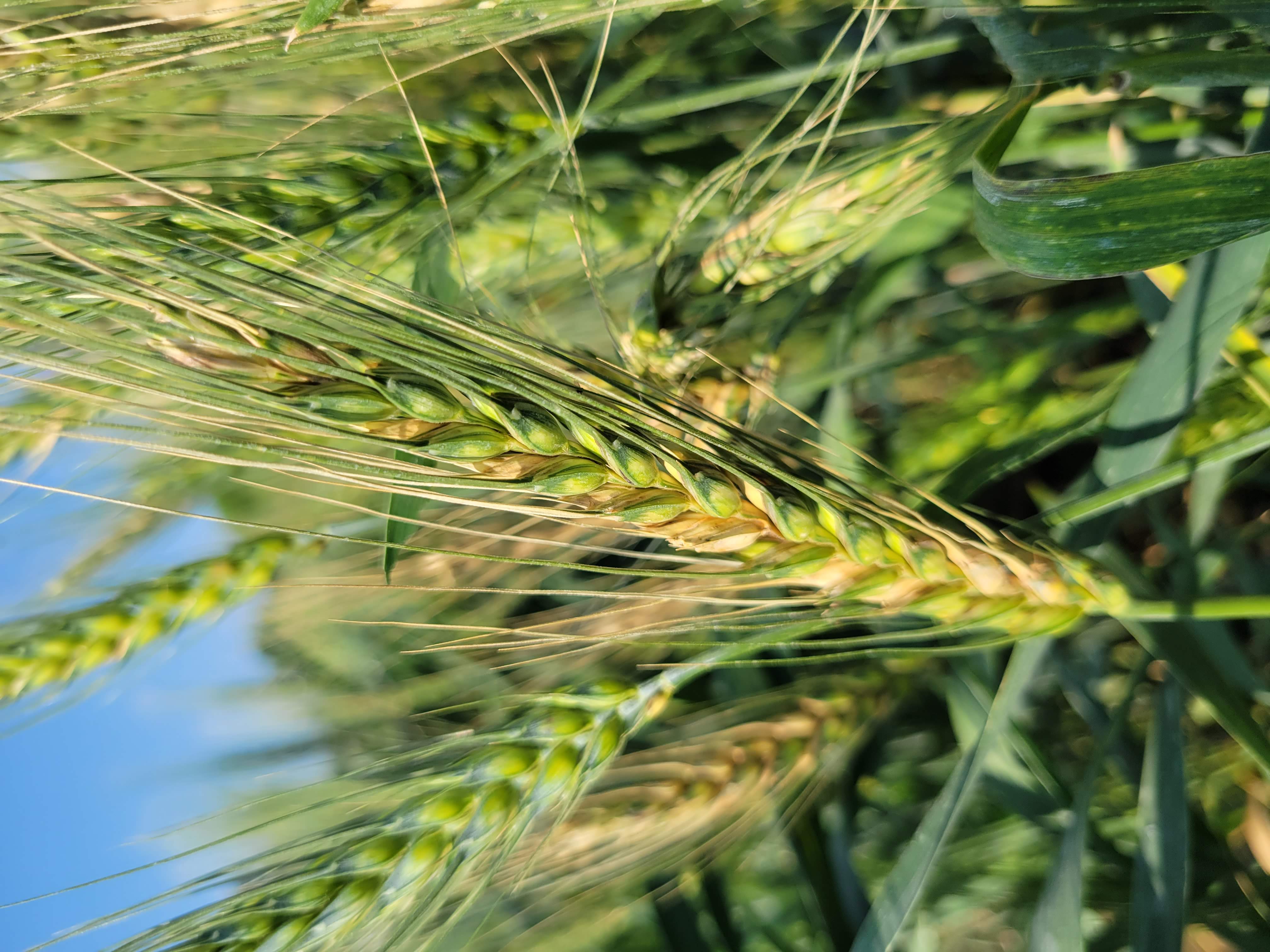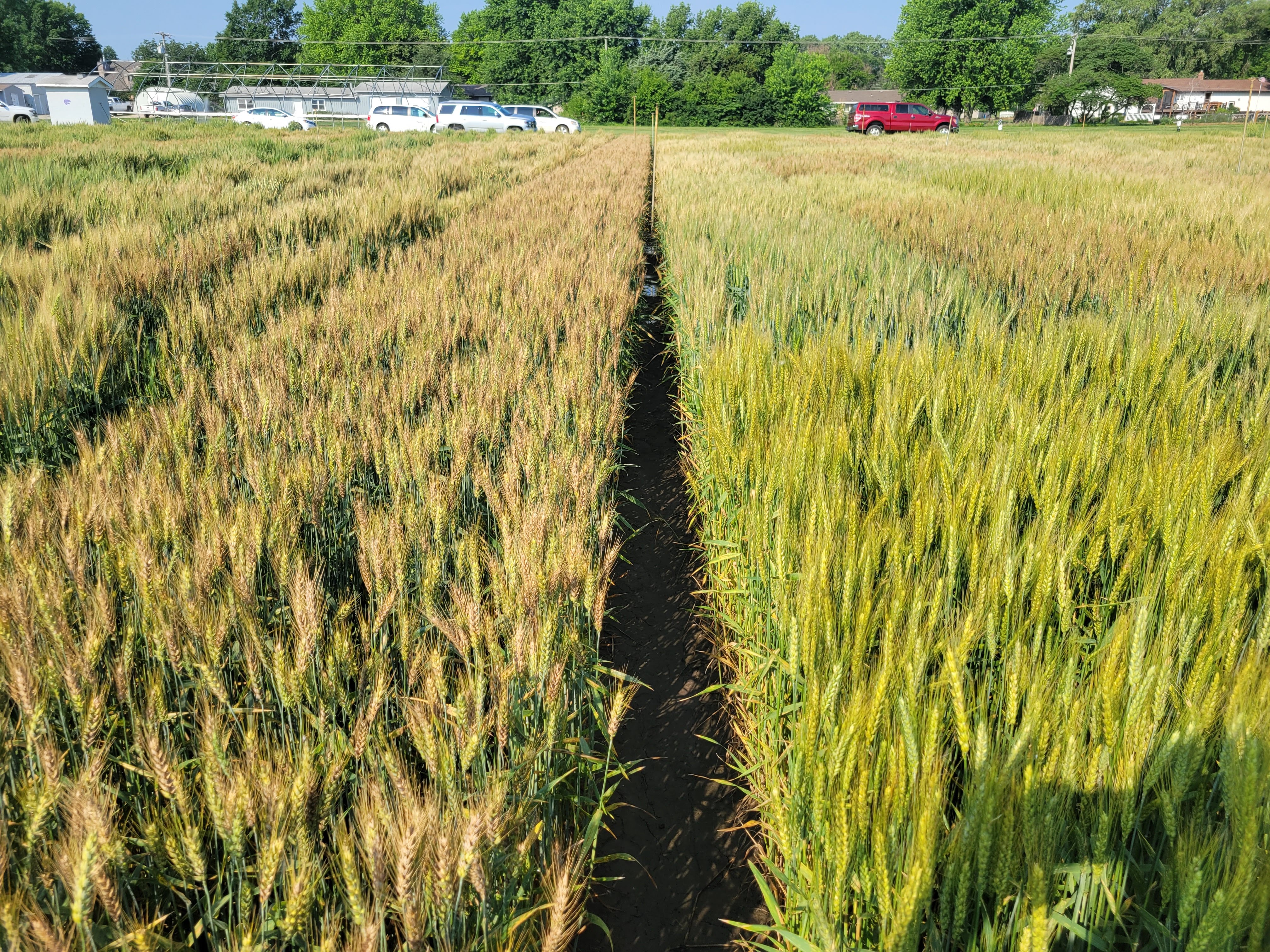By Chandler Day and Megan Kennelly* (Kansas State University – GPDN)
*GPDN Co-Director
The Communicator: Volume 5, Issue 7, July 2024

Kansas is the largest contiguous dryland winter wheat producer in the world. (7.2 million acres/year in KS). Kansas wheat has an average annual value of $1.8 billion. Over the past decade in Kansas, an average of over $166 million per year has been lost because of wheat diseases.
The Kansas State University Plant Disease Diagnostic Lab (K-State PDDL) tests for a wide variety of diseases across diverse crop, landscape, and other plant systems. In wheat, the diagnoses often include rust fungi, wheat viruses, Fusarium head blight (FHB), and others. This service allows wheat producers to make timely management decisions, which increases yield and reduces unnecessary pesticide applications making wheat production more profitable in Kansas. “The KSU Plant Diagnostic Lab is the front line of defense for wheat farmers in Kansas in the battle against wheat diseases. Disease-related losses in wheat can be significant, and Kansas wheat farmers rely on the lab to identify the diseases they have which allows them to make informed management decisions.” said Aaron Harries, V.P. of Research and Operations for Kansas Wheat Commission
On wheat, an average of 304 diagnoses (or tests) are performed every year by the K-State PDDL. In 2017, the K-State PDDL diagnosed 877 problems in wheat, covering almost 60% of Kansas counties. By enhancing the ability to differentiate between various pathogens, the K-State PPDL empowers stakeholders to implement tailored management strategies, optimizing resources and helping safeguard the long-term sustainability of global food security and economic stability.
K-State PDDL is one of 70+ labs supported by NPDN to protect their state agriculture and natural resources. “Funding provided by the NPDN has improved communication and collaboration among member states and with agency partners which has enhanced early disease detection and surveillance of emerging threats." Said Judy O’Mara, Director of K-State Plant Disease Diagnostic Lab. NPDN also provides professional development opportunities to all member labs “The training and professional development I receive because of the NPDN funding gives me access to new technical knowledge that allows for the detection of pathogens that are challenging to identify.” said Chandler Day, Associate Diagnostician for K-State Plant Disease Diagnostic Lab.


